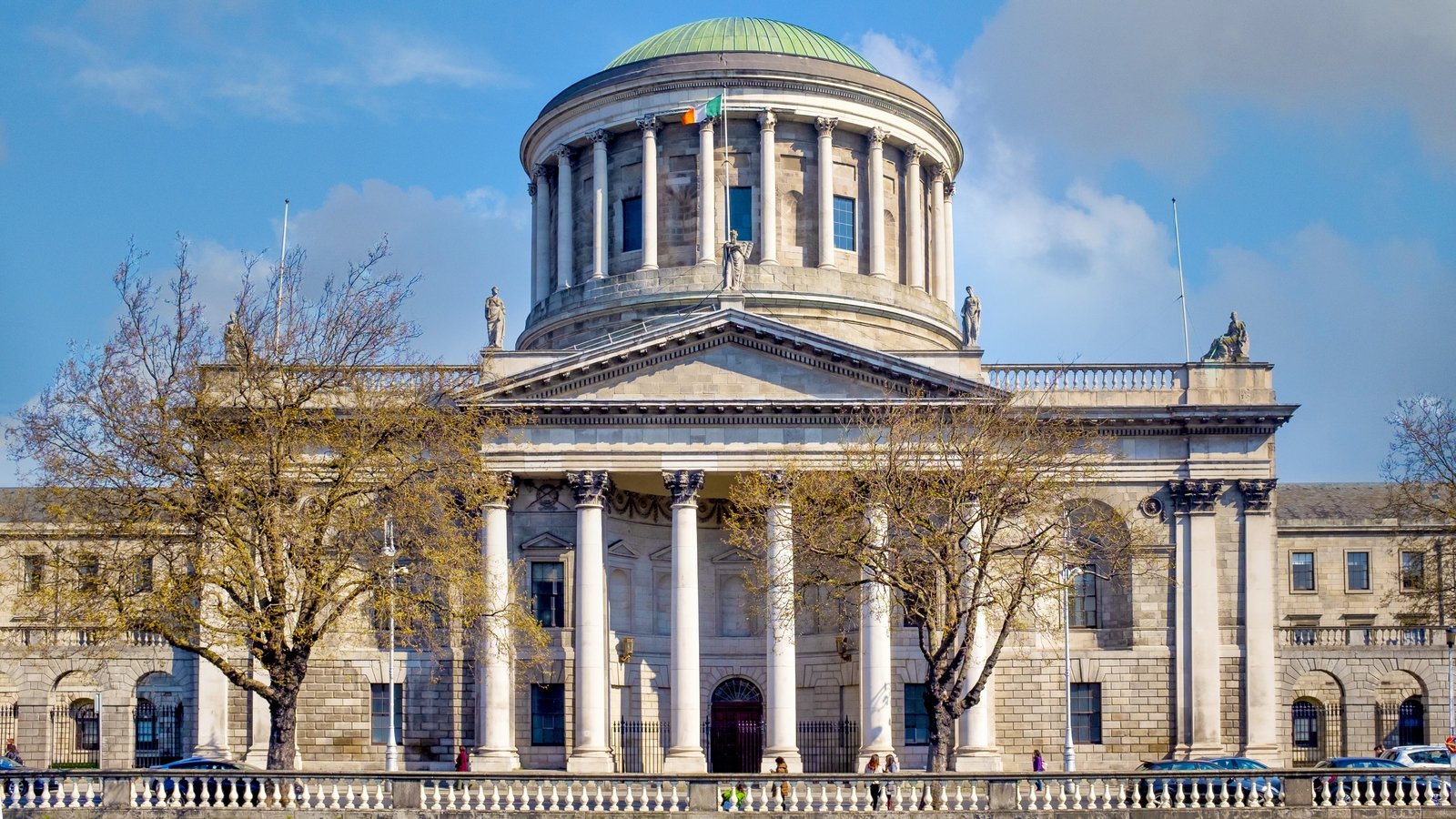Agreement ‘possible’ as Hamas responds to truce proposal
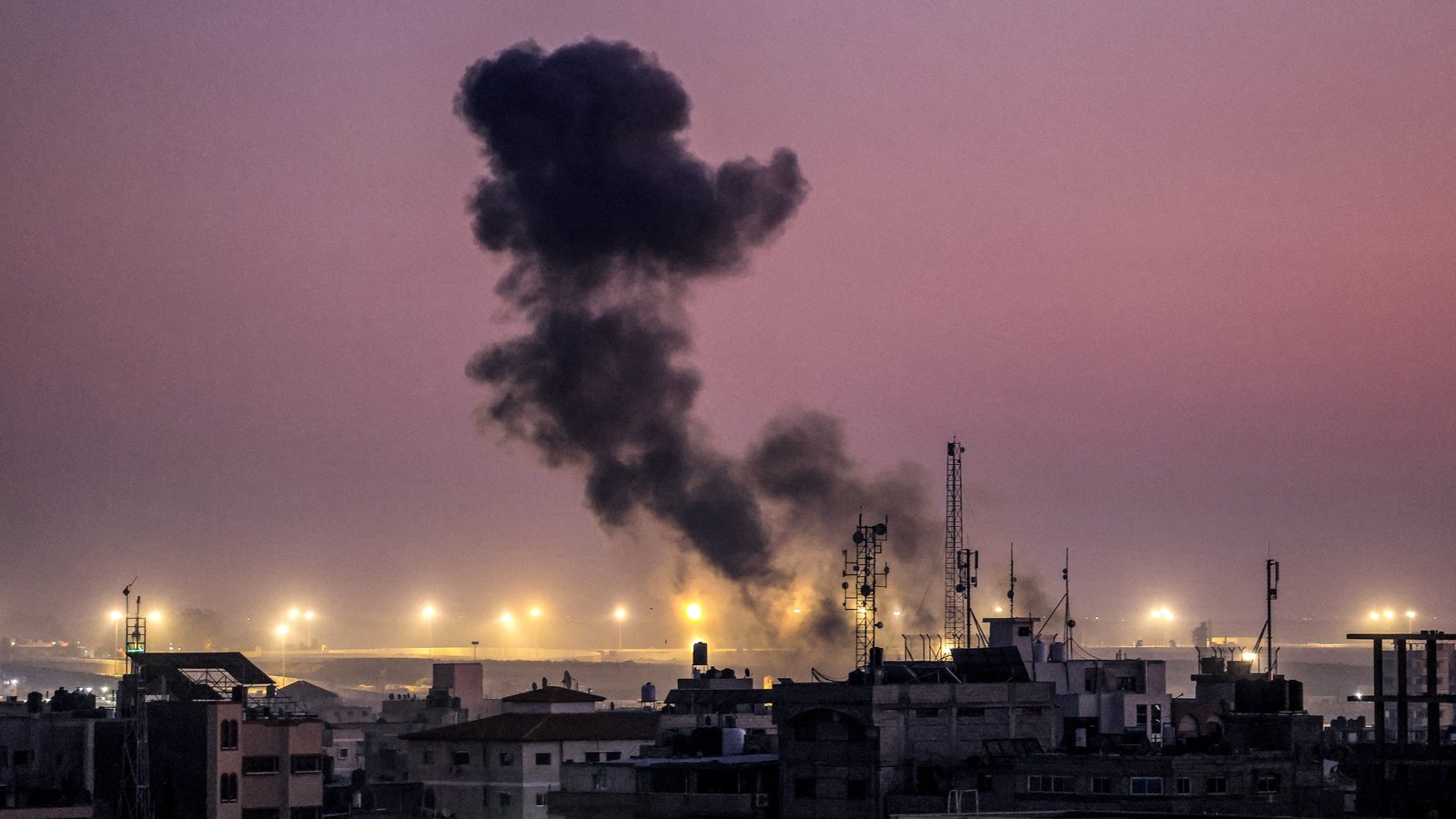
The Palestinian militant group Hamas has said it had delivered its response to a proposed ceasefire deal for Gaza, and the United States said it believed an agreement was possible.
Details of Hamas’ response were not immediately revealed but Qatar, which helped mediate the proposal that was passed on to Hamas last week and would also involve the release of hostages held in Gaza, said the reply had made Qatar “optimistic”.
US Secretary of State Antony Blinken, on a lightning tour of the Middle East, said the US was reviewing Hamas’ response and that he would discuss it with Israeli officials when he visits the country tomorrow.
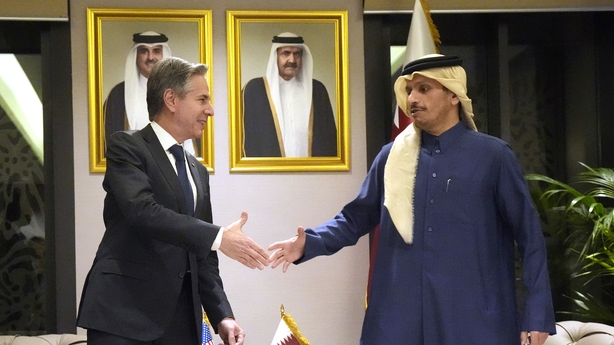
“There’s still a lot of work to do be done, but we continue to believe that an agreement is possible, and indeed essential,” he told a press conference in Doha with Qatari Prime Minister and Foreign Minister Sheikh Mohammed bin Abdulrahman Al Thani.
After Hamas issued a statement saying it had submitted its response to the ceasefire proposal, Sheikh Mohammed said it had been a “positive response” but declined to give further details.
The deal, drawn up more than a week ago by US and Israeli spy chiefs at a meeting with the Egyptians and Qataris, would secure the release of remaining hostages held by militants in Gaza in return for a long pause to fighting.
Hamas previously said any deal must produce a definitive end to the war; Israel has said it will not halt the war permanently until Hamas is destroyed.
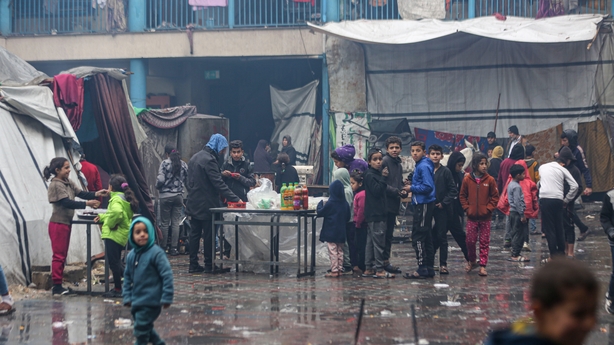
Sources close to the talks say the truce would last at least 40 days, during which militants would free civilians among remaining hostages they hold.
Further phases would follow, to hand over soldiers and dead bodies of hostages, in exchange for releases of Palestinians imprisoned in Israel.
The only truce so far, in November, was agreed for just four days and extended to last a week. At the time, Hamas released 110 hostages in exchange for 240 Palestinians held in Israeli jails.
Israel began its military offensive in Gaza after Hamas militants killed around 1,200 people and took 253 hostages in southern Israel on 7 October.
Gaza’s health ministry said at least 27,585 Palestinians had now been confirmed to have been killed by Israel’s military, with thousands more feared buried under rubble.
Some 107 had been killed in the past 24 hours, the ministry said.
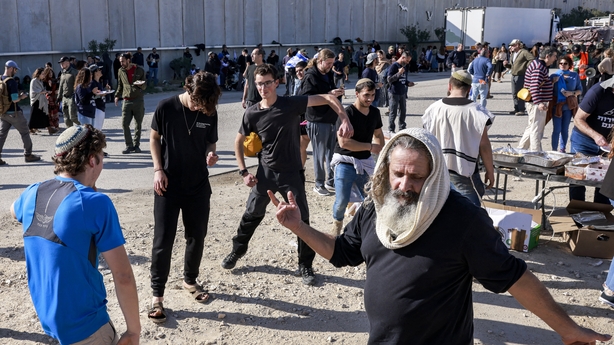
Israel’s chief military spokesperson Rear Admiral Daniel Hagari announced that 31 of the remaining hostages held in Gaza were pronounced dead.
“We have informed 31 families that their captured loved ones are no longer among the living and that we have pronounced them dead,” he told a regular media briefing.
Israel has said 136 hostages are still being held in Gaza.
It comes as Israel is pressing on with its offensive deep into parts of Gaza now sheltering hundreds of thousands of people displaced from earlier fighting, claimed its forces had killed dozens of Palestinian fighters in the past 24 hours.
Palestinians hope Mr Blinken’s talks will nail down a ceasefire before Israeli forces storm Rafah, where more than half of Gaza’s 2.3 million people are sheltering, mainly in public buildings and tents made from sheets of plastic, against the border with Egypt.
Regional tensions continue
A Hamas official who asked not to be identified reiterated to Reuters that the Palestinian group would not allow any hostage releases without guarantees that the war will end, and Israeli forces leave Gaza.
Israeli Prime Minister Benjamin Netanyahu said Israel will fight on until Hamas is wiped out.
However, there is also a growing Israeli movement demanding more effort to bring the hostages home, even if that means a deal with Hamas.
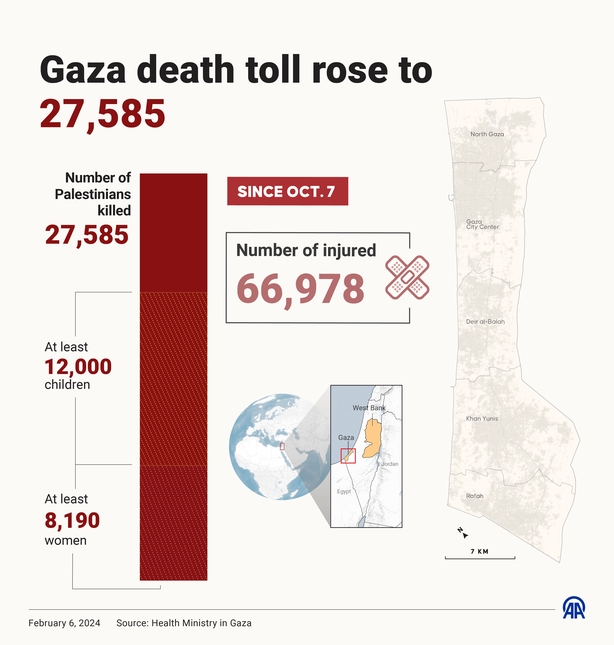
A poll released by a nonpartisan think-tank, the Israel Democracy Institute, found 51% of respondents believe recovering the hostages should be the main goal of the war, while 36% said it should be toppling Hamas.
Mr Blinken also hopes to prevent further escalation in the Middle East, after US air strikes on armed proxies of Iran, which backs Hamas, and further attacks on Red Sea shipping by Yemen’s Houthi militia.
Houthi leader Abdul Malik al-Houthi said the group would seek to escalate further unless the assault on Gaza ends.
Relentless pressure in Gaza
Israeli forces kept up their attacks on Khan Younis, the main southern city they have been trying to capture for weeks.
Aerial and tank bombardment thundered through the city overnight, with at least 14 people killed by air strikes since the pre-dawn hours, Palestinian residents and medics said.
Rafah, just south of it, was also hit by air strikes and tank shelling. Palestinian health officials said the dead there included six policemen whose car was hit.
Israeli leaders claim Rafah is now a bastion of Hamas combat units and vowed last week to push into the town next, alarming international aid agencies who say a million displaced civilians would be in harm’s way, pinned against the border fence with Egypt.

One Israeli official claimed to Reuters that efforts were under way to coordinate any ground assault with Egypt, including plans to evacuate displaced Palestinians northwards.
Mahmoud Amer and his family had pitched their tent in a cemetery in Rafah, hoping they would be safer living among the dead, including the war’s victims in freshly dug graves.
“It’s better than living in residential areas where the houses could collapse on our heads,” said Amer.
“There is no water, no proper aid coming in. The situation is so bad. The dead are in comfort, while we, the living, are in pain.”


